Page 1 of 3
41-9234: A Very Unusual B-17E
Posted: Tue Jul 07, 2009 11:56 am
by Steve Birdsall
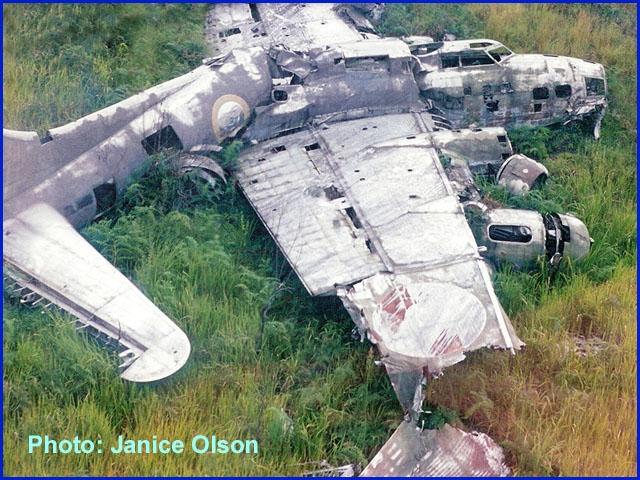
Everybody knows about 41-9234, the shattered B-17E still lying on a hillside at the head of Black Cat Pass near Wau, New Guinea. For years this aircraft was a "mystery" because it appeared to have Royal Air Force markings - roundels on her wings and fuselage, the British serial number FL461, and a camouflage scheme used by the Royal Air Force. Originally allocated to Britain, 41-9234 was one of four B-17Es taken back by the United States and assigned to the 5th Air Force in Australia.
Yet despite her distinguished career with the 19th and 43rd Bomb Groups, nobody was ever able to find any wartime photos of her. Air crew members had recalled a "blue B-17", and particularly associated it with a costly and heartbreaking mission against Japanese shipping at Milne Bay on August 26, 1942. On that day 41-9234 was flown by Captain John Chiles and enemy fire killed his bombardier, Sergeant Earl Snyder, and seriously wounded navigator Lt David Hirsch.
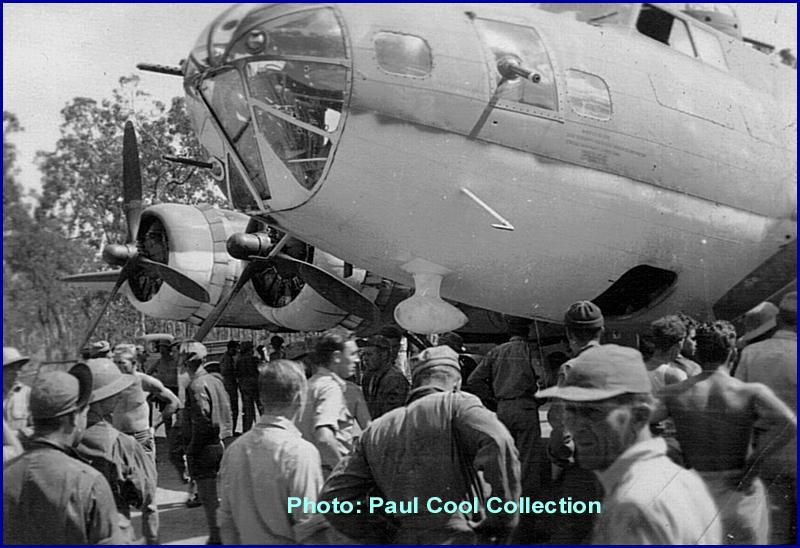
Then this photo turned up in the collection of Paul Cool, son of 19th Bomb Group pilot Captain Paul Cool. There's no indication of when it was taken, but it is at Mareeba, Australia, and the crowd of onlookers indicates that something significant has happened. There are also several tell-tale holes through the nose. The aircraft is painted in what appears to be the Royal Air Force's "Temperate Sea" camouflage scheme.
Evidence I collected with the help of Robert Stitt and Tim Vincent suggests that this aircraft is 41-9234, and I strongly suspect that the photo was taken on August 26, 1942 . . . if anyone can add anything, or identify any of the people in the photo, it would certainly help complete an extraordinary story.
This Flying Fortress is very special. Where else in the world can you still see such a monument to skill and courage . . . a crippled B-17 coaxed into the side of a hill more than sixty-six years ago?
* Cross-posted at www.PacificWrecks.com
Posted: Tue Jul 07, 2009 9:10 pm
by Dan Johnson
Seems to me that she should be in the hanger next to Desert Rat, waiting her turn.
Such a piece of history that could be saved, just left to rot.
Thanks for posting the photos Steve and the story.
Posted: Wed Jul 08, 2009 7:07 pm
by gary1954
Dan Johnson wrote:Seems to me that she should be in the hanger next to Desert Rat, waiting her turn.
Such a piece of history that could be saved, just left to rot.
Thanks for posting the photos Steve and the story.
Amen Dan, Amen...
Posted: Fri Jul 10, 2009 4:00 pm
by Steve Birdsall
Yes, this aircraft is something very special.
Here's a photo that Justin Taylan took in 2003 . . . it shows a repair patch on the left cheek gun window. I believe it's a result of the damage that the aircraft received over Milne Bay on August 26, 1942.
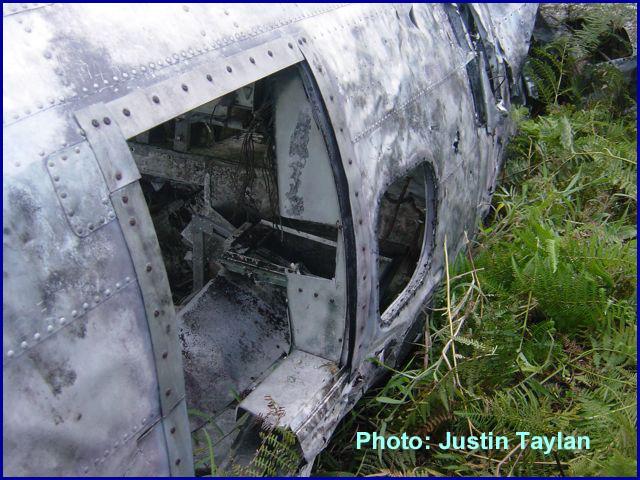
Posted: Fri Jul 10, 2009 10:18 pm
by Steve Birdsall
A lot higher resolution and a little enhancement confirm that the B-17E in the old photograph is definitely 41-9234.
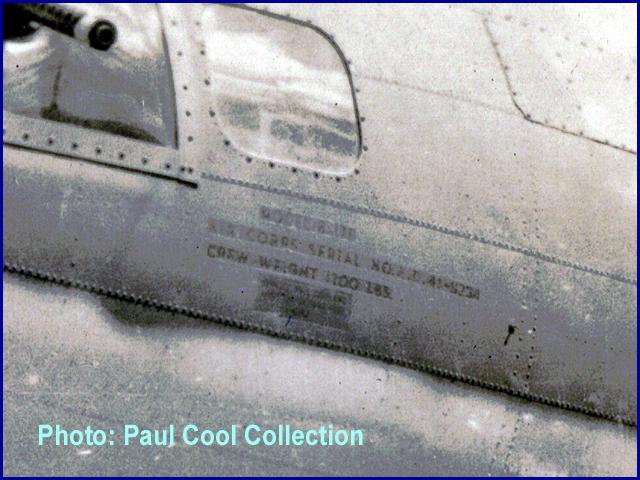
Historical Footnote
Posted: Sat Jul 11, 2009 12:14 pm
by Steve Birdsall
It's interesting to note that two of the gunners who flew with Captain John Chiles in 41-9234 on August 26, 1942 went on to join the Harry Staley crew on 41-24521
Black Jack: Pvt George D. Browning and Pvt Gilbert R. Tredway.
http://b17blackjack.com/crew/staley/index.html
Today, July 11, is the sixty-sixth anniversary of the ditching of
Black Jack off the coast of New Guinea.
Black Cat bird
Posted: Sat Jul 11, 2009 5:16 pm
by hang the expense
I would love to be on the restoration team rebuilding this bird.We better hurry though as we aint getting any younger and there aint a bunch coming in behind us to carry on with restorations unless you can figure out how to make a video game do all the grunt work.

:-)
Posted: Sat Jul 11, 2009 5:30 pm
by DryMartini
Boy, if you didn't hit that one on the head!
Great job confirming that serial number, Steve!
Posted: Sat Jul 11, 2009 6:03 pm
by Steve Birdsall
Thanks Bill. Only took me 40 years to find that photo - hope the next one's easier or I may run out of time.

Posted: Sat Jul 11, 2009 6:21 pm
by gary1954
Steve Birdsall wrote:Thanks Bill. Only took me 40 years to find that photo - hope the next one's easier or I may run out of time.

That would suck.....Glad you still had time. I know what you mean, I have stuff I keep "discovering", and I am 50 with 5 years of experiance!!
Black Cat bird
Posted: Sat Jul 11, 2009 8:31 pm
by hang the expense
These post sound like a well known scene from 24,We are running outta time.

Posted: Tue Jul 14, 2009 4:49 pm
by Steve Birdsall
This well-known photo reveals some details of the Royal Air Force "Temperate Sea" camouflage scheme worn by the four 19th Bomb Group B-17Es that had originally been intended for the Royal Air Force. It's an official USAF photo taken at Port Moresby in New Guinea and the brief caption gives the date as November 1, 1942. If that date is correct, this can be only one of two aircraft - 41-9234 or 41-9244.
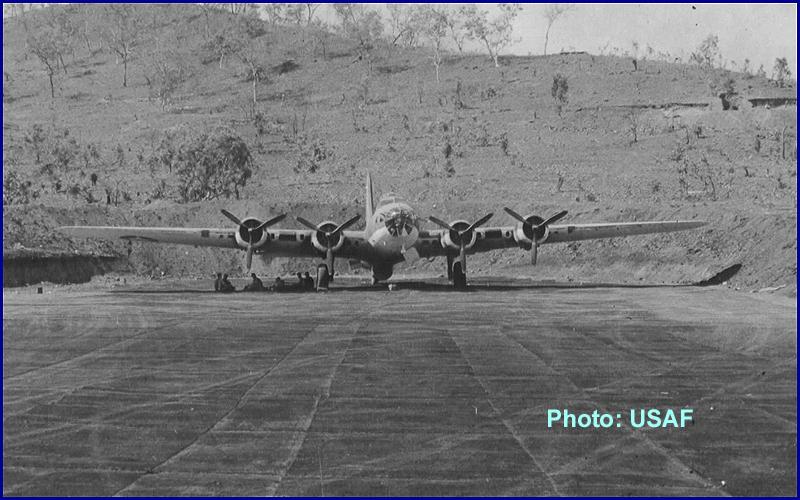
Is this 41-9234? We'll almost certainly never know for sure.
Posted: Wed Jul 15, 2009 12:42 am
by Dan Johnson
Another reason to bring her home and restore her back to her former glory. Talk about a rare bird in many different ways. RAF batch, the different paint scheme, the combat history, the men who flew her.
I just can't see how crumbling to dust is going to help preserve those memories and that history.
Ahh to have lots of money, and no politics involved.
E model
Posted: Wed Jul 15, 2009 4:59 pm
by hang the expense
Looks like it may be the other B-17.Look at the fixed forward firing 30 cal in the lower right of the nose glass frame.It does not have the same blockout panel above the gun.I think the color it is painted would show up regardless of the weather conditions at the time.
Posted: Wed Jul 15, 2009 11:59 pm
by Steve Birdsall
You're right, and 41-9244 had a .50-cal nose gun mounted in that exact position, but I don't know whether a similar modification was made to 41-9234 between late August and the end of October 1942.




